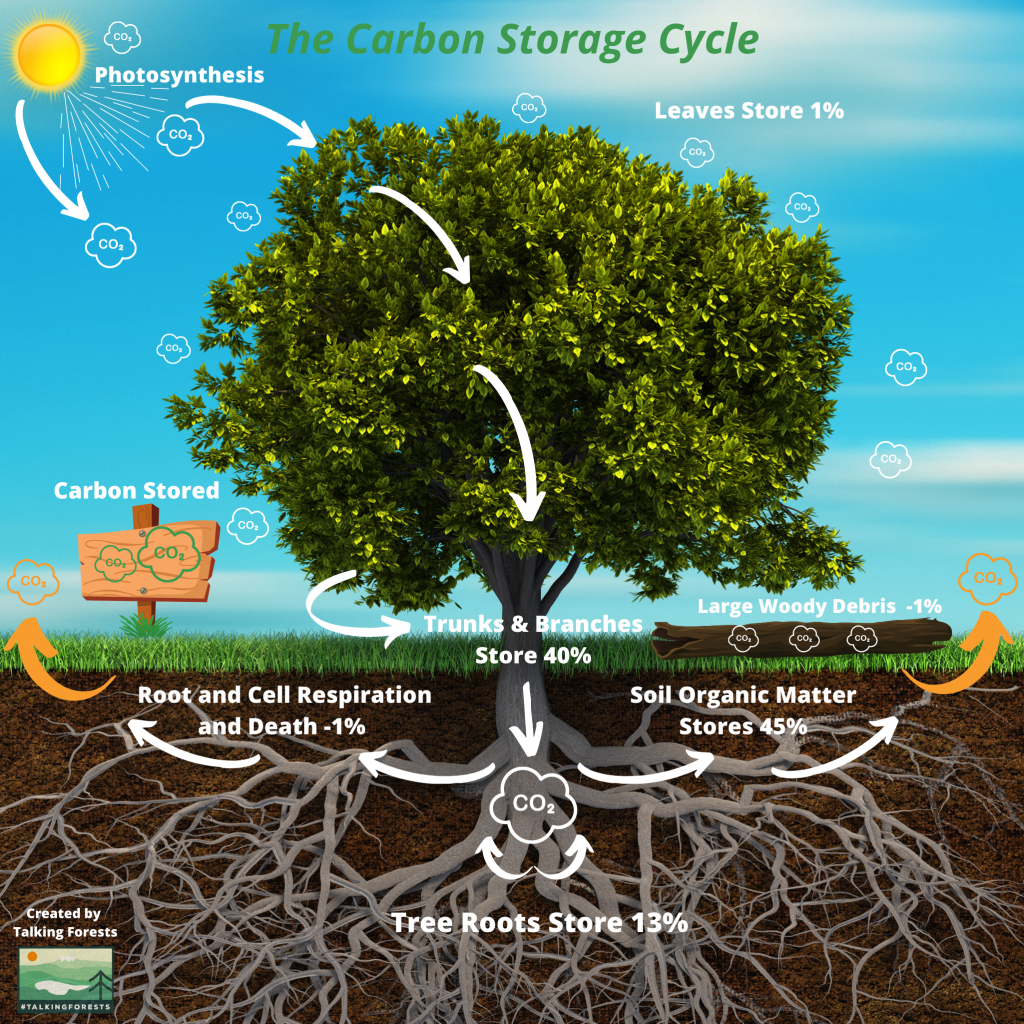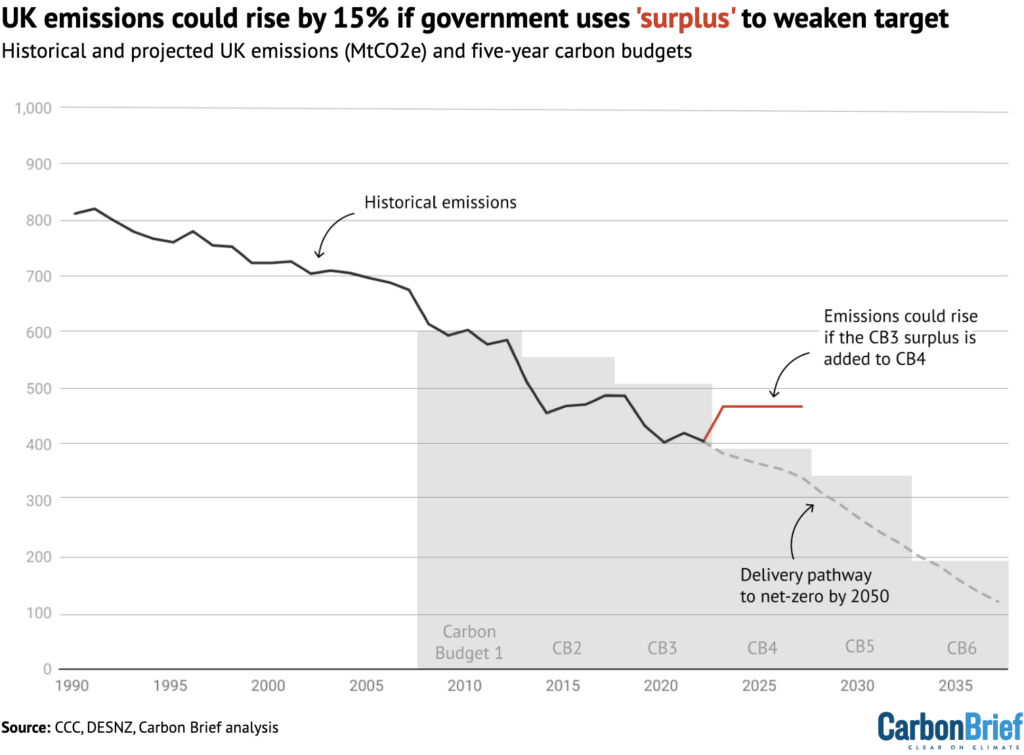
This is an online version of Carbon Brief’s weekly DeBriefed email newsletter. Subscribe for free here.
This week
EU passes nature law
NATURE LAW: On Tuesday, the European parliament approved its “flagship” law to restore nature, reported Reuters, despite a backlash “ignited” by protests from farmers across Europe in recent weeks. The long-awaited “nature restoration” law commits countries to restoring nature on a fifth of their land and sea by 2030, the newswire said, and it includes specific targets such as restoring peatlands “so they can absorb CO2 emissions”. Carbon Brief published a Q&A unpacking the law and the challenges it has faced.
‘POPULISM AND FEAR-MONGERING’: The vote was subject to a “last-ditch attempt from rightwing parties” that “threatened to sink the deal”, reported the Guardian. The law – which now needs final approval from the EU council – was adopted with 329 votes in favour, 275 against and 24 abstentions, reported Deutsche Welle.
‘MANURE, BURNING TYRES AND TEARGAS’: The vote came amid a backdrop of continuing demonstrations by farmers across Europe, protesting against “the EU’s green policies, price pressures and import competition”, reported Politico. On Monday, farmers “locked down” the European quarter in Brussels and were “assaulting police barricades”, the outlet said. Elsewhere, Reuters reported that farmers “blocked a border crossing between Poland and Germany”.
UN environment assembly resolutions
TRANSITIONAL METALS: At the UN environment assembly in Nairobi, which comes to a close today, African leaders called for better controls on demands for the minerals and metals needed for a clean energy transition, the Guardian reported. A resolution supported by mainly African countries including Senegal, Burkina Faso, Cameroon and Chad would “promote equitable benefit-sharing” and attempt to avoid the “injustices” associated with fossil fuel extraction, the outlet explained. A UN press release confirmed that the resolution text was adopted.
SRM NO-GO: Also at the meeting, governments failed to agree on a resolution led by Switzerland to set up a UN expert panel on solar geoengineering, reported Climate Home News. After going through six revisions over the two-week meeting, the resolution was withdrawn on Thursday, said Reuters. The Earth Negotiations Bulletin reported earlier in the week that the resolution “was moving from the realm of the achievable”.
‘BALANCE’ WITH NATURE: At an event during the assembly, leading Islamic scholars published a “groundbreaking” document described as a “Muslim sibling” to Pope Francis’ 2015 Papal Encyclical, reported EarthBeat. The text, titled “Al-Mizan: a covenant for the Earth”, urges Islamic countries and corporations “to transition swiftly from fossil fuels” toward renewable energy in response to climate change, the outlet said.
Around the world
- WINTER WORRY: A “historic” winter heatwave across the central US “demolished” temperature records and contributed to “massive wildfires” in Texas, the Washington Post reported. One of the fires is now the second-largest wildfire in US history, noted BBC News.
- ‘SERIOUS CONCERNS’: The UK’s aid spending watchdog has warned that the government will struggle to meet its commitment to spend £11.6bn over five years up to 2025-26 helping poorer countries deal with climate change, according to the Press Association.
- INDIAN INSTALLATIONS: India’s solar and wind deployment is set to increase by more than 30% in 2024, reported Bloomberg, but this pace is “still not fast enough to meet its clean energy goal of 500 gigawatts by the end of this decade”.
- US ENERGY ACCESS: The US government announced a $366m plan to fund 17 projects to expand access to renewable energy on Native American reservations and in other rural areas, said the Associated Press.
- ‘SUSPECTED SABOTAGE’: Denmark is closing its inquiry into the blasts that “tore apart” two Nord Stream gas pipelines in the Baltic Sea in 2022, BBC News reported. The investigation concluded that the pipelines had been “sabotaged”, but there was “no basis for pursuing a criminal case”.
40,000 tonnes
The amount of wood from old-growth forests in Canada burned by North Yorkshire’s Drax power station in 2023, according to a BBC News Panorama investigation. Drax responded by denying it takes wood from primary forests.
Latest climate research
- A four-year farm trial has shown how using “enhanced weathering” in the corn belt of the US could draw down carbon dioxide and raise crop yields, reported a study in the Proceedings of the National Academy of Sciences.
- A Plos Climate study of apes across 363 sites in Africa warned that they “are and will be increasingly exposed to climate change impacts”.
- A Journal of Climate study identified a “remarkable” increase over six decades in Europe’s summer wet-bulb temperature – a “useful indicator” for heat stress.
(For more, see Carbon Brief’s in-depth daily summaries of the top climate news stories on Monday, Tuesday, Wednesday, Thursday and Friday.)
Captured

This week, the Climate Change Committee (CCC) – the UK’s official advisor – issued “unequivocal” advice to the government that the “surplus” from previous carbon budgets should not be carried forward, reported Carbon Brief. The UK overachieved on its carbon budget for 2018-22, leaving it with an emissions “surplus” – but this was largely down to external factors such as the Covid-19 pandemic rather than policies, the CCC said. It warned that carrying the emissions surplus over could allow the UK’s emissions to rise by 15% (red line on the chart) during the fourth carbon budget period of 2023-27.


Your work has captivated me just as much as it has captivated you. The visual presentation is elegant, and the written content is sophisticated. However, you appear concerned about the possibility of presenting something that could be considered dubious. I’m confident you’ll be able to resolve this issue promptly.
Your point of view caught my eye and was very interesting. Thanks. I have a question for you.